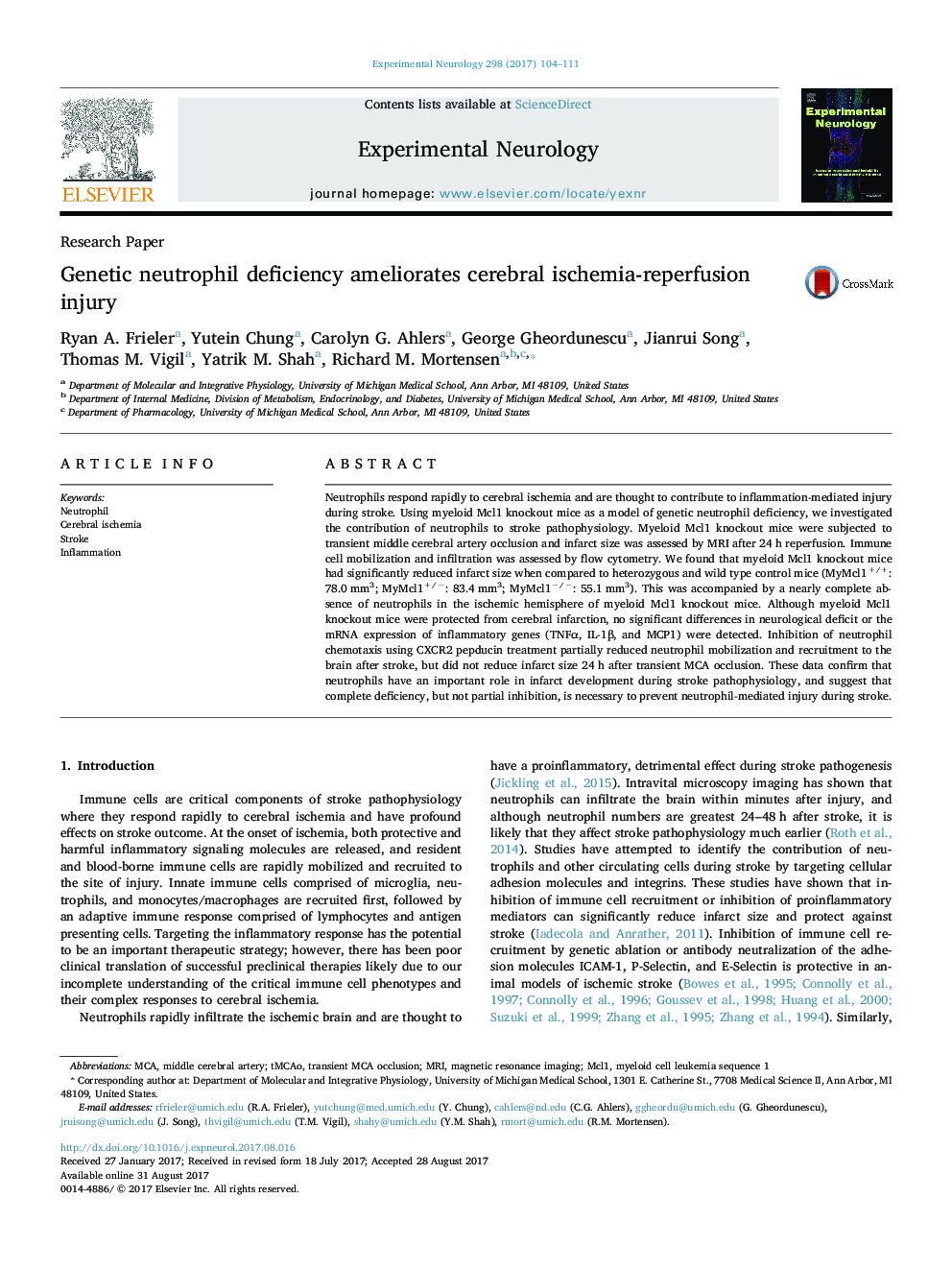| Article ID | Journal | Published Year | Pages | File Type |
|---|---|---|---|---|
| 5629310 | Experimental Neurology | 2017 | 8 Pages |
â¢Myeloid Mcl1 knockout mice are neutrophil deficient and lack neutrophil mobilization and recruitment during strokeâ¢Genetic neutrophil deficiency in myeloid Mcl1 knockout mice decreased infarct size during strokeâ¢Genetic neutrophil deficiency did not suppress inflammatory gene mRNA expression during strokeâ¢Inhibition of neutrophil chemotaxis with CXCR2 pepducin was not sufficient to reduce infarct size during stroke
Neutrophils respond rapidly to cerebral ischemia and are thought to contribute to inflammation-mediated injury during stroke. Using myeloid Mcl1 knockout mice as a model of genetic neutrophil deficiency, we investigated the contribution of neutrophils to stroke pathophysiology. Myeloid Mcl1 knockout mice were subjected to transient middle cerebral artery occlusion and infarct size was assessed by MRI after 24 h reperfusion. Immune cell mobilization and infiltration was assessed by flow cytometry. We found that myeloid Mcl1 knockout mice had significantly reduced infarct size when compared to heterozygous and wild type control mice (MyMcl1+/+: 78.0 mm3; MyMcl1+/â: 83.4 mm3; MyMcl1â/â: 55.1 mm3). This was accompanied by a nearly complete absence of neutrophils in the ischemic hemisphere of myeloid Mcl1 knockout mice. Although myeloid Mcl1 knockout mice were protected from cerebral infarction, no significant differences in neurological deficit or the mRNA expression of inflammatory genes (TNFα, IL-1β, and MCP1) were detected. Inhibition of neutrophil chemotaxis using CXCR2 pepducin treatment partially reduced neutrophil mobilization and recruitment to the brain after stroke, but did not reduce infarct size 24 h after transient MCA occlusion. These data confirm that neutrophils have an important role in infarct development during stroke pathophysiology, and suggest that complete deficiency, but not partial inhibition, is necessary to prevent neutrophil-mediated injury during stroke.
